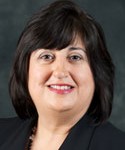By Angela Rocheleau
Did you know that couples over age 65 are connected in such a way that the health of one person is related to the health of the other? In a recent study conducted by Harvard Medical School, it was determined that the more disabling a medical condition is to physical and mental ability, the greater the effect it will have on the caregiver spouse.
 The level of risk for a spousal caregiver depends on the type of medical conditions affecting the partner. We receive calls from family members expressing that they are very concerned about what will happen to the caregiver when these situations arise. Here are some recent concerns and our recommendations on how to handle these sensitive and emotional situations.
The level of risk for a spousal caregiver depends on the type of medical conditions affecting the partner. We receive calls from family members expressing that they are very concerned about what will happen to the caregiver when these situations arise. Here are some recent concerns and our recommendations on how to handle these sensitive and emotional situations.
Q: My mother has recently been admitted to the hospital with a serious illness. Up until then, my dad took care of her. Now that she is in the hospital, we are worried about both of them.
At least we know mom is closely watched and cared for, but dad’s life has radically changed. He is traveling back and forth to the hospital every day and sitting long hours at her bedside holding her hand. All the focus seems to be on mom, but I am noticing dad is not taking care of himself and he won’t listen to me. How do we help him during this difficult time?
A: When a spouse is hospitalized, the partner’s risk of serious health issues increases significantly. Intervention by family members is really important at this time, as stress and the lack of social and family support seems to affect the caregiver on a deeper physiological level and can impact their immune system. This all translates into the need for family and friends to consider the caregiver.
In this case, your dad needs the support of family and friends just as much as your mother. Be sure he is given the attention, companionship and care that he needs. This might be a good time to arrange for an additional caretaker dedicated to taking care of your dad. You might want to engage a professional home health care aide to assist him in the home, by helping with household chores, meal preparation and activities of daily living. It could make the difference in providing the support he needs while the family is focused on your mother.
Q: Our elderly aunt is not doing well. We know hospice is an option but we are not sure what that means for us if we decide to bring her to our home in her final days.
A: Hospice is a philosophy of care for those individuals in the final phases of a terminal illness. Hospice trained, certified home health aides can provide compassionate care for the patient as well as support to the family during this incredibly difficult time.
The focus of care for the patient is on comfort and quality of life. The goal is to enable patients, like your aunt, to live each day as fully as possible. Hospice care includes: personal care, maintenance of comfort measures, relief and support for the patient’s primary caregivers, and reliable compassionate care for the patient and their family.
In exploring agencies to help you during this time, be sure the aides maintain their certifications and have completed specialty training in hospice care. While providing care, aides should also be routinely supervised by nurses, in addition to being fully insured and bonded.
Angela Rocheleau has 25 years of experience in the home health care industry focusing on leadership roles for the past two decades. She serves on the Better Business Bureau board of Central New England and the Executive Board of the Mass Council for Home Care Aides.












